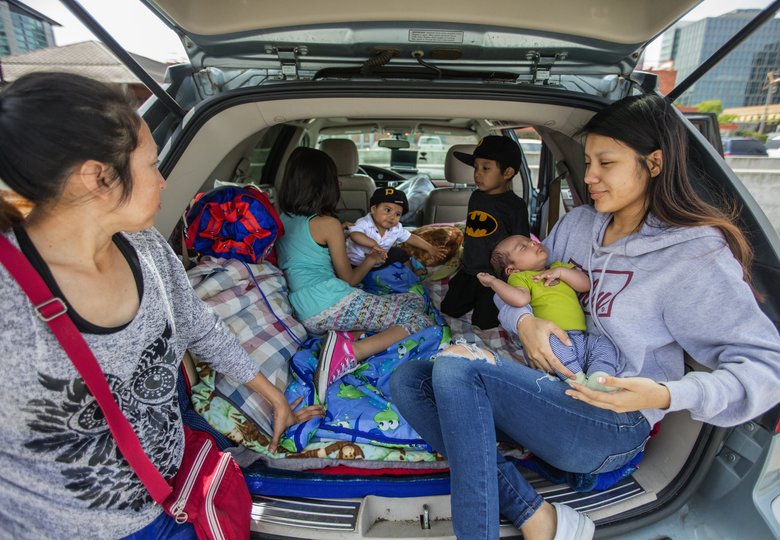U.S. Homelessness Is Not What You Might Think by Nicole Simonson, LICSW

Homelessness in America is not what you might think it is. In the U.S.A. 2.5 million children experience homelessness each year. By law, a person qualifies as homeless if they lack “a fixed, regular, and adequate nighttime residence” (McKinney Vento Act). A person does not need to be “unsheltered” to qualify as homeless and experience the pervasive negative impacts of this experience. If you are asked to envision a homeless person in your mind, you may conjure up an image of an aged or middle-aged panhandler on a city sidewalk. Perhaps you may think of this man as a Veteran or someone with a substance disorder, or both. But this image is only a fraction of the true portrait of homelessness in the United States.
Roughly one third of the faces of homelessness in the United States belong to families, typically headed by a young, minority, single mother with two children under the age of six. Around 80% of those mothers are either currently fleeing domestic violence or have experienced interpersonal violence at some point in their lives and lack economic, safe housing, and social support resources. This issue is often compounded by the fact that many of these mothers are “unskilled workers” whose wages have not kept up with increases in housing costs and inflation. Those families who have tried to pay for housing on their own often find themselves spending an average of 70% of their income on housing costs. Volumes of research document the adverse and pervasive impacts of poverty, homelessness and exposure to violence on young children including negative health, educational, and social outcomes. The fallout is generational. While progress has been made to support children in this situation, much more work needs to be done.
Legislation currently exists to protect the educational rights of homeless children, like the McKinney Vento Act, but more is needed in the area of economic mobility for homeless families. An approach that is multi-pronged and intergenerational is necessary. Learn more about proposed legislation here and let your legislators know that we need better solutions today.
The ways that you can help are to volunteer in a homeless center, or donate to you local shelter for families and children. Here is more information:
Services provided by McKinney Vento Act
Horizons for Homeless Children

